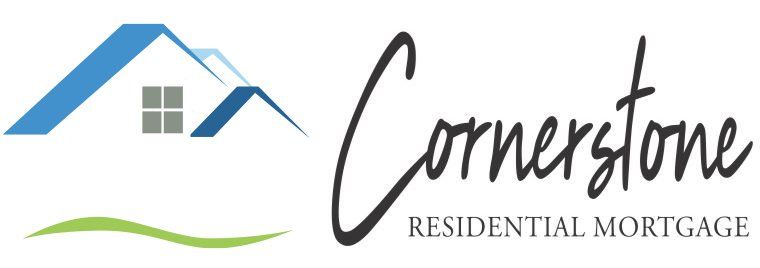Should You Consider a New Mortgage on a Paid-Off House?
- By Admin
- •
- 08 Nov, 2021

Do you own your primary home free and clear? Not having a mortgage payment is a common goal for many Americans, but don't underestimate the value of taking on a new mortgage after completing one. Why might this be a good choice? And how does it work? Discover what you need to know.
Why Take Out a New Mortgage?
For many Americans, the equity in their home - its value minus the amount owed to a mortgage lender - is one of the biggest assets they own. Unfortunately, it's also a very non-liquid asset. To make any use of it, you need to find a way to free it up. And unless you want to sell, that means taking out some sort of loan against the equity.
Tapping the value of your house, though, isn't necessarily a bad thing. Mortgage loans are some of the lowest interest rate sources of credit and loans that can stretch out over a much longer period of time. This makes them ideal for large purchases like a second home, retirement planning, home improvements, college educations, or business ventures - things you may not be able to finance with shorter loans.
In addition, if you have already paid off the home, you're probably already used to making the mortgage payment on a regular basis. In contrast to inexperienced new buyers, you're in a good position to take on only what credit you can afford, and you likely have good money habits to help you be successful.
What Are the Risks of a New Mortgage?
The risk of taking on a new mortgage voluntarily is the same as taking one on initially: not making payments could mean foreclosure. For this reason, any homeowner should consider their finances carefully and avoid taking on mortgages for the wrong reasons or at the wrong time. A solid budget and money management are keys to the success of a later-life mortgage.
Other challenges to getting a new loan vary. If you've owned the property for some time, for example, it may need some attention to bring it up to the condition that lenders want to see when loaning against it. You'll often have to pay new closing costs and fees, as well. And older workers should carefully manage their new mortgage so as not to interfere with retirement planning and saving.
How Does the New Mortgage Process Work?
In most ways, the process of getting a mortgage for a home you've owned for years is the same as getting one to buy a house. You will need to meet the criteria for the type of loan you want. This usually includes things like having total minimum monthly debt payments lower than 28% to 50% of your income and a credit score of at least 620. The higher your score or the lower your debt, the better offers you'll get.
The good news is that a borrower with a solid history of paying off a first mortgage is often attractive to lenders. You may not qualify for first-time homebuyer programs or other incentives, but a positive credit history along with the higher income usually obtained later in a person's career can boost a homeowner's chances of a great deal.
Where Can You Learn More?
Want to know more about your options for refinancing a home you've paid for? No matter how much you want to get out of it or why you want access to the money, begin by meeting with the lending pros at Cornerstone Residential Mortgage. We will help you analyze your credit, your loan choices, and your home's value to find the right product for your needs. Call today to get started.
Why Take Out a New Mortgage?
For many Americans, the equity in their home - its value minus the amount owed to a mortgage lender - is one of the biggest assets they own. Unfortunately, it's also a very non-liquid asset. To make any use of it, you need to find a way to free it up. And unless you want to sell, that means taking out some sort of loan against the equity.
Tapping the value of your house, though, isn't necessarily a bad thing. Mortgage loans are some of the lowest interest rate sources of credit and loans that can stretch out over a much longer period of time. This makes them ideal for large purchases like a second home, retirement planning, home improvements, college educations, or business ventures - things you may not be able to finance with shorter loans.
In addition, if you have already paid off the home, you're probably already used to making the mortgage payment on a regular basis. In contrast to inexperienced new buyers, you're in a good position to take on only what credit you can afford, and you likely have good money habits to help you be successful.
What Are the Risks of a New Mortgage?
The risk of taking on a new mortgage voluntarily is the same as taking one on initially: not making payments could mean foreclosure. For this reason, any homeowner should consider their finances carefully and avoid taking on mortgages for the wrong reasons or at the wrong time. A solid budget and money management are keys to the success of a later-life mortgage.
Other challenges to getting a new loan vary. If you've owned the property for some time, for example, it may need some attention to bring it up to the condition that lenders want to see when loaning against it. You'll often have to pay new closing costs and fees, as well. And older workers should carefully manage their new mortgage so as not to interfere with retirement planning and saving.
How Does the New Mortgage Process Work?
In most ways, the process of getting a mortgage for a home you've owned for years is the same as getting one to buy a house. You will need to meet the criteria for the type of loan you want. This usually includes things like having total minimum monthly debt payments lower than 28% to 50% of your income and a credit score of at least 620. The higher your score or the lower your debt, the better offers you'll get.
The good news is that a borrower with a solid history of paying off a first mortgage is often attractive to lenders. You may not qualify for first-time homebuyer programs or other incentives, but a positive credit history along with the higher income usually obtained later in a person's career can boost a homeowner's chances of a great deal.
Where Can You Learn More?
Want to know more about your options for refinancing a home you've paid for? No matter how much you want to get out of it or why you want access to the money, begin by meeting with the lending pros at Cornerstone Residential Mortgage. We will help you analyze your credit, your loan choices, and your home's value to find the right product for your needs. Call today to get started.



